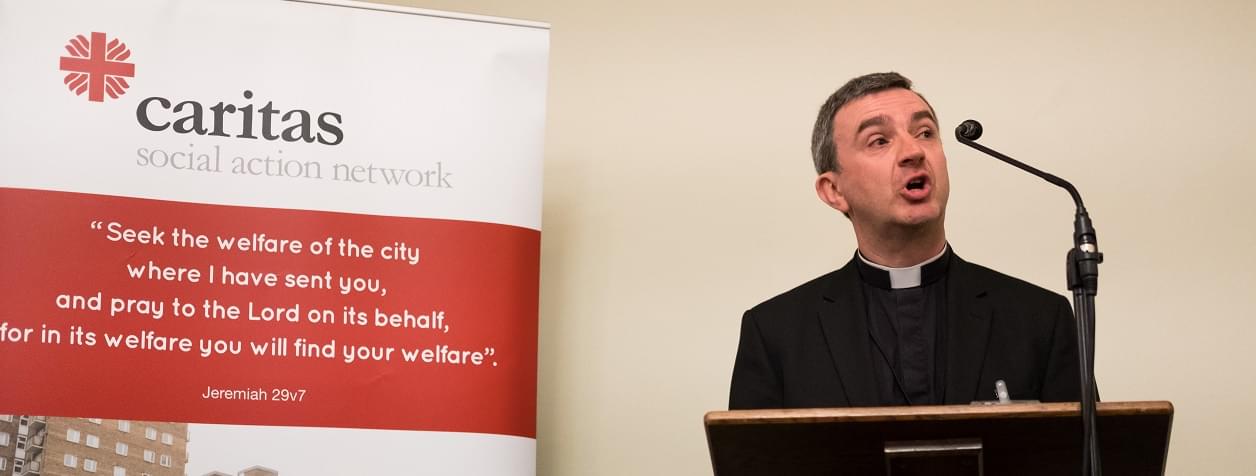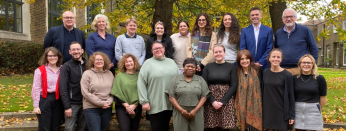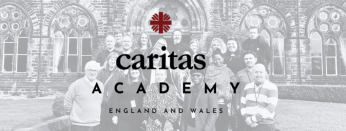The Housing Crisis in England and Wales
Speech of Canon Dr Angus Ritchie at the Parliamentary Reception of Caritas Social Action Network, hosted by Lord Desmond Browne
20 November 2018
Not long after I arrived in Shadwell, I gave a notice at our Sunday service about our parish’s involvement in community organising. I talked about the listening process, which had identified affordable housing as a major local need, and about the Biblical motivations for our engagement.
As I spoke, I noticed something was wrong. Those who were listening the most intently were the people whose concern came from a position of relative security – not a direct experience of housing need.
So I told the story of Bethan, a woman from the next-door parish who had been organising on affordable housing for some years, and was about to move her family out of an overcrowded flat into the first Community Land Trust in east London.
Now a different part of our congregation was leaning forward and listening: the people struggling to make ends meet, the people who actually needed affordable housing for their own families.
That morning, we took a small but vital step in the affordable housing campaign. It ensured our organising was not simply a voice for the voiceless, but that the voiceless found their own voice.
This year, as we have read through Mark’s Gospel at Sunday Mass, I’ve been struck afresh by the people who respond most deeply to Jesus. People like the Syro-phonecian woman, the blind beggar Bartimaeus, the unnamed woman with a haemorrhage – people who cry out to him great need, whether the need is their own or that of a loved one. These are the people who recognize and respond to the Kingdom Jesus proclaims.
Too often, in our discussions of housing, the poorest are cast in a purely passive role. They are treated as problems to be solved (whether through charity or public policy). That is not their role in Gospels, or in the New Testament Church. Pope Francis is recalling the Church to this Gospel vision. He challenges each of us to understand the poorest as the agents through whom God is most active in history – rather than seeing them as the passive recipients of charity or social policy. In doing so, he is continuing the work of his predecessor. Benedict XVI taught us that Catholic social action needs to be rooted ever more deeply in the teaching and worship of the Church – Caritas in Veritate. Francis is building on this as he teaches us that a truly Christ-like caritas sees the poorest at the heart of God’s redeeming, liberating work.
It was a great honour to be asked to write one of the essays in Abide in Me, the report on housing which we are launching today. It tells the story of congregations which are seeking to live out this vision: congregations with the poorest at their heart, and not just a heart for the poor. In housing and homelessness, many of the greatest failures of policy flow from a failure to give those in need any agency in their development. If we want more effective policy, we cannot evade these questions of power and of voice.
As this report is launched, it is also good to be able to announce the launch of another piece of work. Realities are Greater than Ideas is a report produced by the Centre for Theology and Community, with funding from CSAN and the Diocese of Brentwood. It shows how the practice of community organising is helping Catholic parishes and schools to work with their neighbours for the common good – placing those in greatest need at the heart of public action.
The Holy Father uses the term “human ecology” to refer to the environment in which human beings live – their homes and streets, the communal spaces (or the lack of them). We need to attend to the “human ecology” of our neighbourhoods. But we also need to attend to the “human ecology” of our politics; to the eco-system in which policy is generated (and the voice the poorest do or do not have in that process) as well as the social environment that policy creates. We do not only need safe, decent and affordable units of housing. We need to build homes – and we need to build ways of doing politics – which allow trust and solidarity to flourish.







